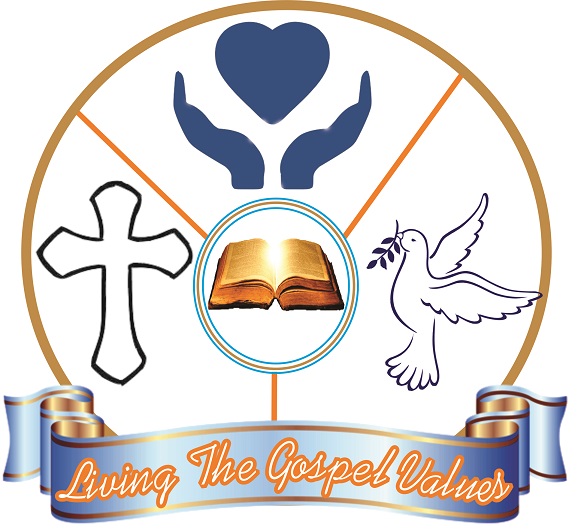 Reflection on Today's Readings, 6th Sunday in Ordinary Time, Year B, February 14th, 2021
Reflection on Today's Readings, 6th Sunday in Ordinary Time, Year B, February 14th, 2021
Texts: Lev. 13: 1-2.44-46; Ps. 32:1-2.5.11; 1Cor. 10:31-11:1; Mark 1:40-45
Leprosy is a kind of diseases that is contagious and as such, everyone who has it is ostracised; he is made to live in a special place. It is such a dreadful disease that no one prays to have it. In the Old Testament, priest stood as a public officer who examined the person and determined whether it was a leprosy. Once it was confirmed by the priest and declared leprosy, the person became unclean and unfit to live among people.
What is described in the first reading is the leprosy of the body; there is leprosy of the soul, which is sin. Sin separates man from God, it casts him out of God's presence. Prophet Isaiah says, "But your iniquities have made a separation between you and your God, and your sins have hidden His face from you so that He does not hear" (59:2). Sin does not only separate us from God but also from our brothers and sisters. Hence, Pope Francis says, " Sin severs: sin severs the relationship with God and it severs the relationship with brothers and sisters, relationships within the family, in society and in the community: sin always severs; it separates; it divides" (Wednesdayaudience, Jan. 3, 2018). Just as leprosy of the flesh is contagious, so also sin is contagious; it has the ability to spread from one person to another. That is what is meant by this proverb, "Walking in the company of dog makes sheep eats faeces".
We do everything to avoid the leprosy of the body, and pay little or no attention to the leprosy of the soul. Leprosy of the soul is more dangerous than the leprosy of the flesh. This is because it denies us eternal life. Leprosy of the flesh only separates us in time from our loved ones and so gives temporal suffering; leprosy of the soul separates us in eternity from our love ones and from God who is love. We have to avoid leprosy of the soul.
Jesus is always willing to heal us. In today's gospel reading, it is said, "A leper came to Jesus begging him, and kneeling said to him", If you will, you can make me clean'. Moved with pity, he stretched his hand and touched him and said to him , 'I will; be clean'". Touching the leper is a gesture of love and a way of sharing from the leprosy. This gesture really expresses what incarnation is all about: For love of us, while we were still sinners, He came down from heaven to carry our sins upon Himself. Incarnation is an expression of God's love and a way of sharing from man's weakness. Jesus has come down from heaven to heal and carry away our diseases; He has come to save us from sinning and to take the guilt of our sins upon Himself.
Jesus continues to encounter and heal us in the sacrament of reconciliation. It is at confessional that Jesus meets us, touches us, and heals our souls of leprosy, the disease which separates us from God and from our brothers and sisters. Hence, through the sacrament of reconciliation, we are reconciled with God and with our brothers and sisters. This sacrament of God's mercy and love has suffered neglect from people for whom it is given. How often do we fail to make use of this sacrament Jesus has given us to clean ourselves from leprosy!
St. Paul, in today's second reading encourages us to do everything for the glory of God. He says, "Whatever you eat or drink, or whatever you do, do all to the glory of God. Give no offence to Jews or to Greeks or to the Church of God, jus as I try to please all men in everything I do, not seeking my own advantage, but many, that they may be saved". When we do this we grow in the image of Christ, we grow in holiness. St. Paul adds, "Be imitators of me, as I am of Christ ". We stay away from leprosy of the soul when we imitate Christ. When we imitate Christ leprosy of the soul will no place in our souls.
Lord our God, we thank you for the gift of sacrament of reconciliation, grant us the grace to approach it and be washed clean in the blood of the Lamb, our Lord Jesus Christ. Amen.
Fr.Andrew Olowomuke
Leprosy of the Soul
Living the Gospel Value
February 13, 2021
- July 20251
- January 20253
- December 20242
- November 20245
- October 20244
- September 20242
- August 20245
- July 20247
- June 20247
- May 202413
- April 202420
- March 202422
- February 202428
- January 202434
- December 202333
- November 202330
- October 202333
- September 202329
- August 202331
- July 202331
- June 202315
- October 20221
- September 20228
- August 20221
- July 20221
- June 202218
- May 202230
- April 202230
- March 202210
- February 20229
- January 202228
- December 202133
- November 202130
- October 202130
- September 202115
- August 202128
- July 202131
- June 202128
- May 202133
- April 202128
- March 202130
- February 202131
- January 202131
- December 202032
- November 202032
- October 202034
- September 202028
- August 202031
- July 202031
- June 202026
Wikipedia
Search results
Contact Form
Popular Posts

The Sainthood
November 01, 2020

Conversion: Our way of Life
January 24, 2022

Be Unassuming
November 03, 2023
AD BANNER





0 Comments